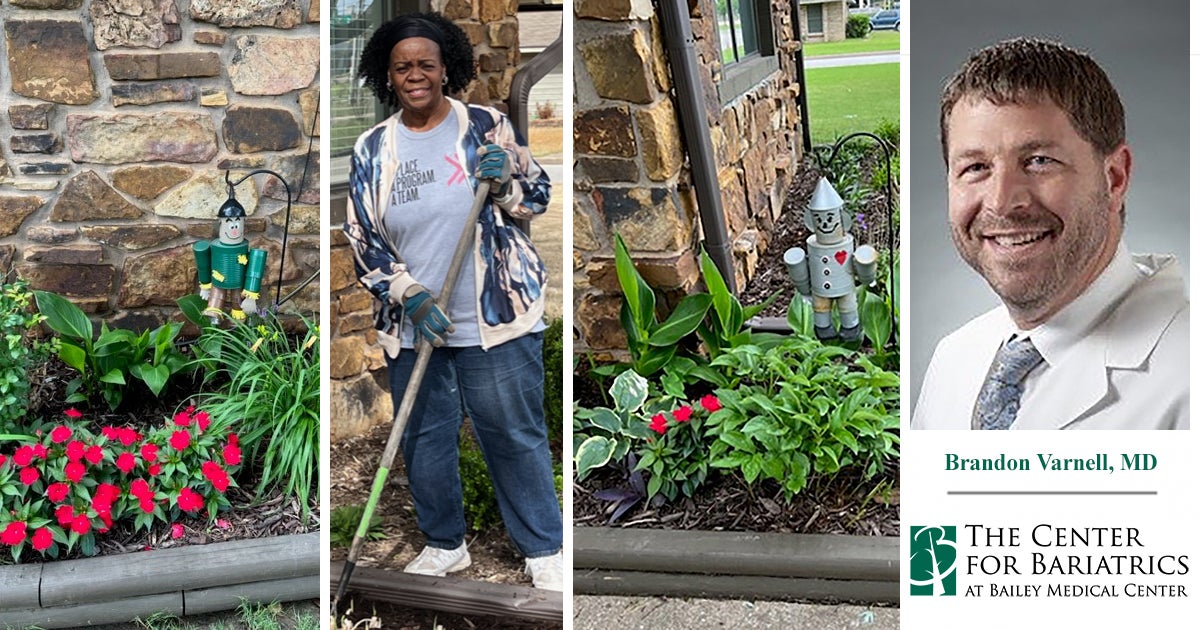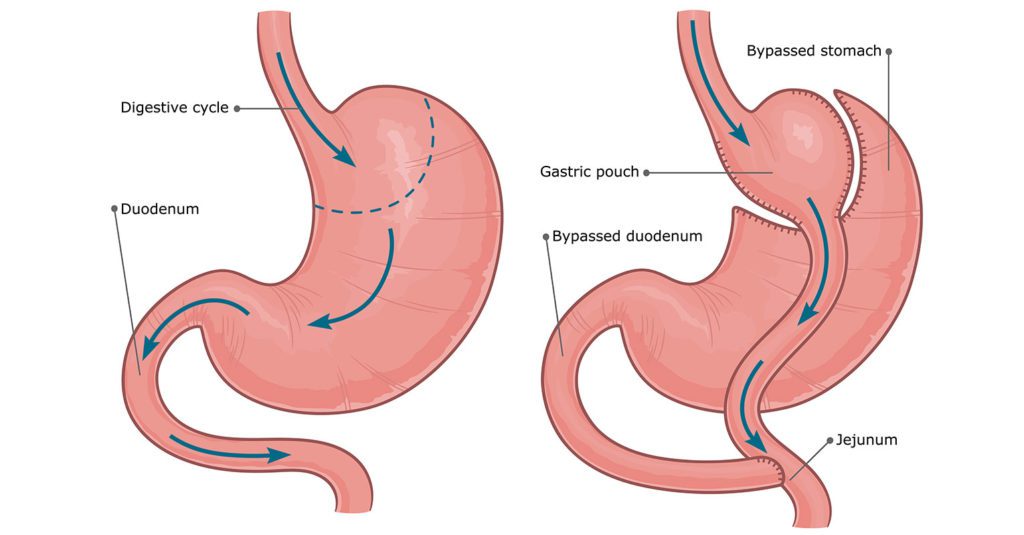
For someone who loves to garden and travel, walking a short distance used to be difficult for Dorothy Checotah.
Whenever the 69-year-old retired social worker/counselor left her Tulsa home, she had already thought out where to park, whether there would be stairs to climb and how many steps it would take to reach her destination. She developed these habits years ago when she had a series of surgeries.
“I had back surgery that involved fusing my spine,” she recounted, “and later had both knees replaced. It was hard for me to get around without the use of a cane. On top of that, I had a weight problem, which just added to everything going on.”
At her heaviest, Checotah weighed 275 pounds and dealt with blood pressure issues. Every day she took two blood pressure medications and a diuretic, which helped her body get rid of sodium and water.
“I was tired of being heavy and taking all those medications. That’s what led me to consider bariatric surgery.”
Checotah was referred to Brandon Varnell, MD the bariatric surgery director at Bailey Medical Center.
“I went into the appointment thinking that I wanted gastric sleeve surgery,” Checotah said. “I figured that would be the easiest for me, as anything more extensive would be too much to deal with. But Dr. Varnell was very reassuring as we talked about different surgeries and the risks. He noted that I had a little bit of acid reflux, which might increase by having gastric sleeve surgery. I could manage the reflux by taking a daily antacid medication for the rest of my life. But since I wanted to stop taking medications, he said a better choice would be the Roux-en-Y gastric bypass surgery, so that’s what I decided to do.”
Checotah was given a notebook of information that detailed preparations for the surgery, developing a healthier diet and lifestyle, and continuing her weight loss after surgery.
“They put me on a liquid diet before the surgery,” she said, “and it helped me lose 25 pounds. I met with staff members and learned how to focus on eating more protein, limiting carbohydrates and choosing the right portion size. This nutrition plan is excellent - it really works.”
Roux-en-Y gastric bypass surgery
“I was a little bit nervous that morning, simply because I was having surgery. My husband, daughter and best friend were all there and were very supportive. I had made up my mind that this was what I was going to do and that it was going to work for me. I really focused on having a positive mindset about it all.”
Checotah met with Dr. Varnell, the anesthesiologist, nurses and staff prior to the surgery for any last-minute questions.
“Everyone was very reassuring and cheering for me,” Checotah said. “As far as I'm concerned, I couldn't have had a better staff for the surgery.”
While there are a couple of different versions of Roux-en-Y gastric bypass surgery, the basics are the same.
The surgeon divides the stomach into two parts: a much smaller pouch and the larger, remaining portion of the stomach. The small intestine is then connected directly to the small pouch, which bypasses the rest of the stomach. The bypassed stomach is not removed, as it still makes enzymes that help with digestion.
This results in a smaller stomach that gets full faster, thus keeping the patient from eating as much as before.
Following a successful surgery, Checotah was discharged a couple of days later to return home. She continued to refer to the information she received in the notebook.
“The notebook has a schedule for when I should be up and moving,” Checotah explained. “They also gave me access to a bariatric app that shows me how much fluid I’m consuming, how much protein I should be eating and more. I’m still following this nutrition plan and intend to continue it for the rest of my life.”
Every three months, Checotah goes to the Center for Bariatrics at Bailey Medical Center to meet with a pulse navigator who keeps her informed of the different classes and activities available. She has also joined a support group to cheer on others who had bariatric surgery.
Weighing 220 pounds four months post-surgery, she knows that the ongoing support from the program will help her continue losing weight.
“Whenever I visit the staff at the center, no matter who it is or what they do, I feel like they are all cheering me on to succeed. They always have positive and encouraging comments that make you feel good about what you're doing for yourself. I really recommend this program to anyone considering bariatric surgery,” she said.
Flowers and travels
Now with less weight and more mobility, Checotah and her husband Donnie plan to renew their love of traveling. They want to see their two grandsons and family in Houston, as well as more beautiful sites across the U.S.
“Donnie’s career in the military has afforded us many opportunities to travel around the country,” Checotah said. “We generally travel here in the U.S. because there are places we haven’t seen. But we are looking forward to returning to Alaska sometime this fall when the weather is pleasant.”
returning to Alaska sometime this fall when the weather is pleasant.”
Checotah also plans to spend many more hours outside in the flower gardens around her home.
“I just love beautiful flowers, a trait I got from my mother. I especially love yellow cannas, which I grew from the cuttings that she gave me. They are perennials, so I don’t have to replant them every year, unlike most of the flowers in our good-sized yard. I guess I’m like my mother – I love having flowers all around me.”
With summer quickly approaching, it won’t be long until the cannas, like Dorothy Checotah, are in full bloom.
If you would like to learn more about bariatric surgery at The Center for Bariatrics at Bailey Medical Center, visit our website or give us a call at (918) 376-8410.
